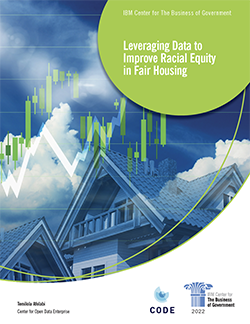
Leveraging Data to Improve Racial Equity in Fair Housing

Residential segregation is related to inequalities in education, job opportunities, political power, access to credit, access to health care, and more. Steering, redlining, mortgage lending discrimination, and other historic policies have all played a role in creating this state of affairs.
Over time, federal efforts including the Fair Housing Act and Home Mortgage Disclosure Act have been designed to improve housing equity in the United States. While these laws have not been entirely effective, they have made new kinds of data available—data that can shed light on some of the historic drivers of housing inequity and help inform tailored solutions to their ongoing impact.
This report explores a number of current opportunities to strengthen longstanding data-driven tools to address housing equity. The report also shows how the effects of mortgage lending discrimination and other historic practices are still being felt today. At the same time, it outlines opportunities to apply data to increase equity in many areas related to the homeownership gap, including negative impacts on health and well-being, socioeconomic disparities, and housing insecurity.
This brief builds on the IBM Center’s recent work addressing how public administration can promote equity, which is one of the Center’s priority research areas, and on work done by the Urban Institute and other research centers. It is the second in a series of projects on Open Data for Racial Equity conducted in partnership with CODE. The first report in that series, Using Data to Advance Racial Equity in Healthcare, was published in August 2022.
We hope that this report provides helpful perspectives for government leaders and their stakeholders in designing effective strategies and programs that promote more equitable access to fair housing for all Americans.



